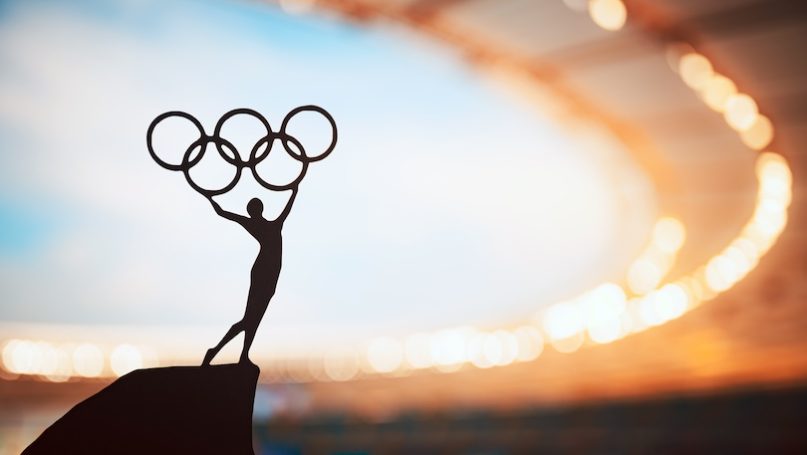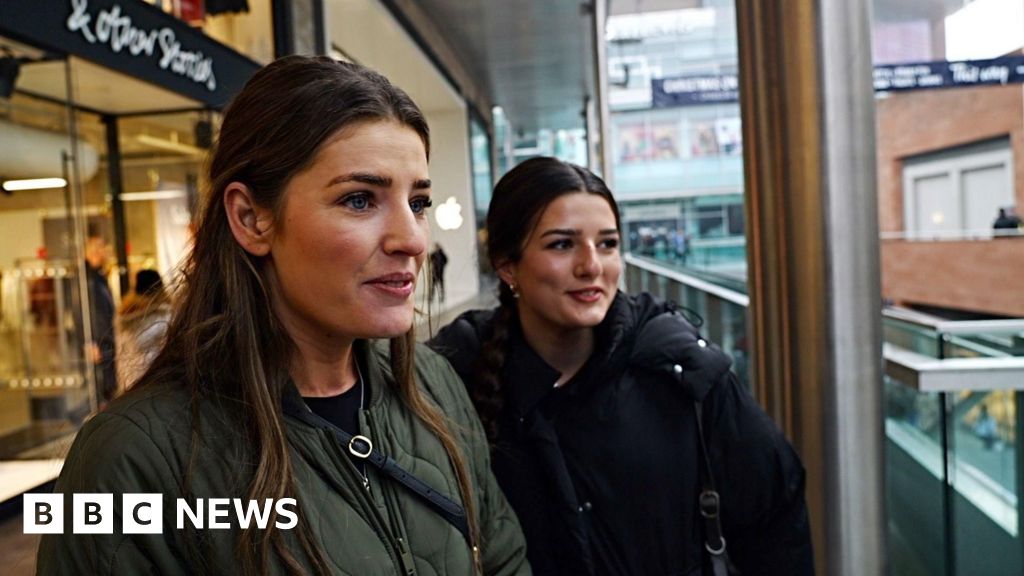
kovop/Shutterstock
World sport events have become a recurring part of everyday experience for billions of people around the globe. Via TV, online streams, or more directly on site, enthusiasts and occasional observers can experience a diverse range of sports played at the highest professional level. And while not all of these events receive wide-spread media coverage, the largest and most prominent world sport events like the FIFA World Cup or the Olympics reach a considerable share of the world population. These high-profile events feature athletes who participate as representatives of their home nations. Thus, it is not just individual athletes or sport teams who compete against each other, but also the nations which they represent. World sport events thereby captivate the global public imagination in a very particular manner. They suggest that the world consists of rivaling nations who inevitably compete with each other – but on the basis of common rules.
Because world sport events have a global reach and because they convey a particular image of the world, they matter beyond the realm of sports. More specifically, we argue that they play a decisive role for the stabilization of international order (as a specific kind of world order) and the reproduction of international society (which is a society of states). Before we elaborate on this claim, let us illustrate how this perspective complements other analyses of sports and (international) society.
Sports have recently received increased attention within the IR community. For example, Franke and Koch have provided analysis of press statements by the IOC and FIFA on contemporary conflicts. Weiss and Daßler have used sports and sports metaphors to discuss policy positions. Chadwick has even called for a new research field focused on the geopolitcal economy of sport (see also this interview with him). This new found interest in the relationship between sports and politics adds to the literature on the following issues: mafia-style practices and corruption scandals in sports, the implications of hosting world sport events for the sovereignty of the host nations, the lack of fit between regime legitimacy and the host role of a state, the political instrumentalization of sport events and sportwashing, or the securitization through sport events.
Although there is an increasing scholarly interest in sports, the role played by world sport events for the stabilization of international order and for the reproduction of international society has received less attention. Building on a piece of ours that was published in International Theory, we suggest that world sport events with global reach are far more than a pleasant diversion, a business opportunity, or a spectacle in the service of individual states’ political power. Rather, they function as massive public diplomacy (or propaganda) on behalf of international society. In particular, they celebrate the notion that the world empirically consists of nation states and promote the idea that this is a joyful and engaging world. From this perspective, international society is more preferable than alternative world orders such as a global empire or a global society of individuals.
In our article, we substantiate the claim that world sport events contribute to international order by theorizing world sport events and by an empirical analysis of international football. Regarding the former, we draw on the English School, ritual studies, and ludology (the study of game and play) to show how world sport events can be conceptualized as an institution of international society.
More specifically, world sport events are a derivative primary institution that is embedded in the primary institution of sites and festivals. This institutional setting provides for the festive and playful side of international society. Moreover, it relies on focal times (festivals) and spaces (sites) to display and celebrate international society in miniature. Finally, it is particularly open to the participation of non-sate (or world societal) actors which explains not only the mobilization of private individuals around the globe but also why private organizations like FIFA can act as secondary institutions of international society in this context.
Our perspective on world sport events helps to explain and understand a broad range of phenomena beyond the general contribution of world sport events to international order. Our take, which foregrounds the role of nation states, e.g. also clarifies why states like Qatar can serve as host countries in spite of their human rights track record. In international society, human rights have still not become as important as the key institutions of sovereignty, territoriality, and nationalism.
At the same time, our approach implies that world sport events also signal important limits to acceptable state behavior. It is international society’s three key institutions just mentioned that were harmed massively by Russia’s full-scale invasion of Ukraine in 2022. As a consequence, Russia became an untenable participant for world sport events like the men’s FIFA World Cup 2022, the FIFA Women’s World Cup 2023, and the Summer Olympics 2024. If we consider that world sport events are an institutional part of international society, then such exclusions of Russia can be interpreted as “clear reactions to the Russian war of aggression” and as evidence for international society’s concern with “peace, coexistence and cooperation as minimal goals”, as we have discussed elsewhere.
While our main concern is with the link between world sport events and international order, our approach additionally helps to reconstruct the rationale that underlies the efforts of some states to use sport as a means for self-aggrandizement and status politics. World sport events enact the world in a specific way and as in the case of other rituals, there is always the promise that one can shape this performance of international society in a way that is favorable for one’s own role in that society. At a minimum, participation at world sport events communicates membership in international society. But it is also possible for individual states to use world sport events to convey the message that they have a pivotal position. In other words, while world sport events are a playful stage, performing international society in miniature can have an impact on international society itself.
This observation points at the symbiotic relationship in which world sport events and international society find themselves. World sport events would probably not mobilize the masses to such a degree if it were not for the claim that essentially “the whole world” (understood as all nation states) would be represented. On its part, international society gains in legitimacy as discussed above: international order becomes more natural and desirable than alternative world orders. We would argue that it is because of this symbiotic relationship that international sports organizations get away with all kinds of scandals. They are needed as secondary institutions of international society. However, this also poses a danger for international society. In particular in democratic countries with demands for public accountability, corruption and other scandals in world sports can backfire on international society.
What international society needs instead are world sport events that are inspiring and convey a positive message. If world sport events can be peaceful and entertain people, there is also hope for the world in which they perform. This line of reasoning became obvious in some of the comments on this year’s Summer Olympics in Paris. The Guardian, for example, reported: “Paris said goodbye to its Olympics with a message about the importance of protecting the spirit of the games in an uncertain world riven by conflict.”
According to the Olympics, international order can be stable since international society’s key goals can be secured: violence will be avoided and both the individual members and international society itself will be preserved. The Olympics even suggest that international society is about cooperation and not merely coexistence. Our approach shows why world sport events are particularly apt to convey such messages of hope for the existing world order that comes in the form of international order. As much as they are joyful, world sport events are also very serious games.
Further Reading on E-International Relations
About The Author(s)
Bernd Bucher is an Associate Professor in Political Science at Franklin University Switzerland. His work focuses on processual-relational approaches in IR, English School theory, critical norm research, and border studies. He is also collaborating with Oliver Strijbis and Elisa Volpi, who together run a prediction market-based risk and opportunities index.
Julian Eckl is a post-doctoral research fellow at the University of St. Gallen, Switzerland. He was trained as a political scientist but draws on various neighbouring disciplines. He writes on the social reproduction of different forms of societal order, political ethnography, as well as global health governance and financing. He is the author of “Focal Times and Spaces: How Ethnography Foregrounds the Spatiotemporality of International Organizations and Global Governance”, Global Policy 12, no. S7 (2021): 34–44.
Editorial Credit(s)
Ayman Triki
Before you download your free e-book, please consider donating to support open access publishing.
E-IR is an independent non-profit publisher run by an all volunteer team. Your donations allow us to invest in new open access titles and pay our bandwidth bills to ensure we keep our existing titles free to view. Any amount, in any currency, is appreciated. Many thanks!
Donations are voluntary and not required to download the e-book - your link to download is below.

 Movie
Movie 3 months ago
46
3 months ago
46 






![Presidents Day Weekend Car Sales [2021 Edition] Presidents Day Weekend Car Sales [2021 Edition]](https://www.findthebestcarprice.com/wp-content/uploads/Presidents-Day-Weekend-car-sales.jpg)



 English (United States)
English (United States)